If you’re anything like us, you’re spending a lot more time in the kitchen of late and perhaps being a little more adventurous than usual. As well as improving your cooking, there's plenty of opportunity to create sustainable kitchen habits alongside new dishes. Here are our top tips for a sustainable healthy, kitchen.
Quick links
-
Experiment with vegetables
-
Reduce food waste
-
Go organic, buy weird
-
Cook in bulk
-
Ponder packaging
-
Use natural cleaning products
-
Energy-efficient cooking methods
-
Energy-efficient kitchen appliances
Experiment with vegetables
According to our favourite climate scientist, and many others in the scientific community, eating less meat is one of the most effective ways we can lower our personal carbon footprints. There are also clear health benefits, including decreased risk of heart disease and stroke. Nuts and peas are excellent 'low carbon' sources of protein.
Going the extra mile, or actually not going the extra mile, it’s almost always better to buy seasonal, and therefore local, to decrease food miles. Our friend and Queen of Veg (we gave her that title), Livia Solustri, has created a very useful, and beautiful, Periodic Table of Veg with all the info you need regarding this.
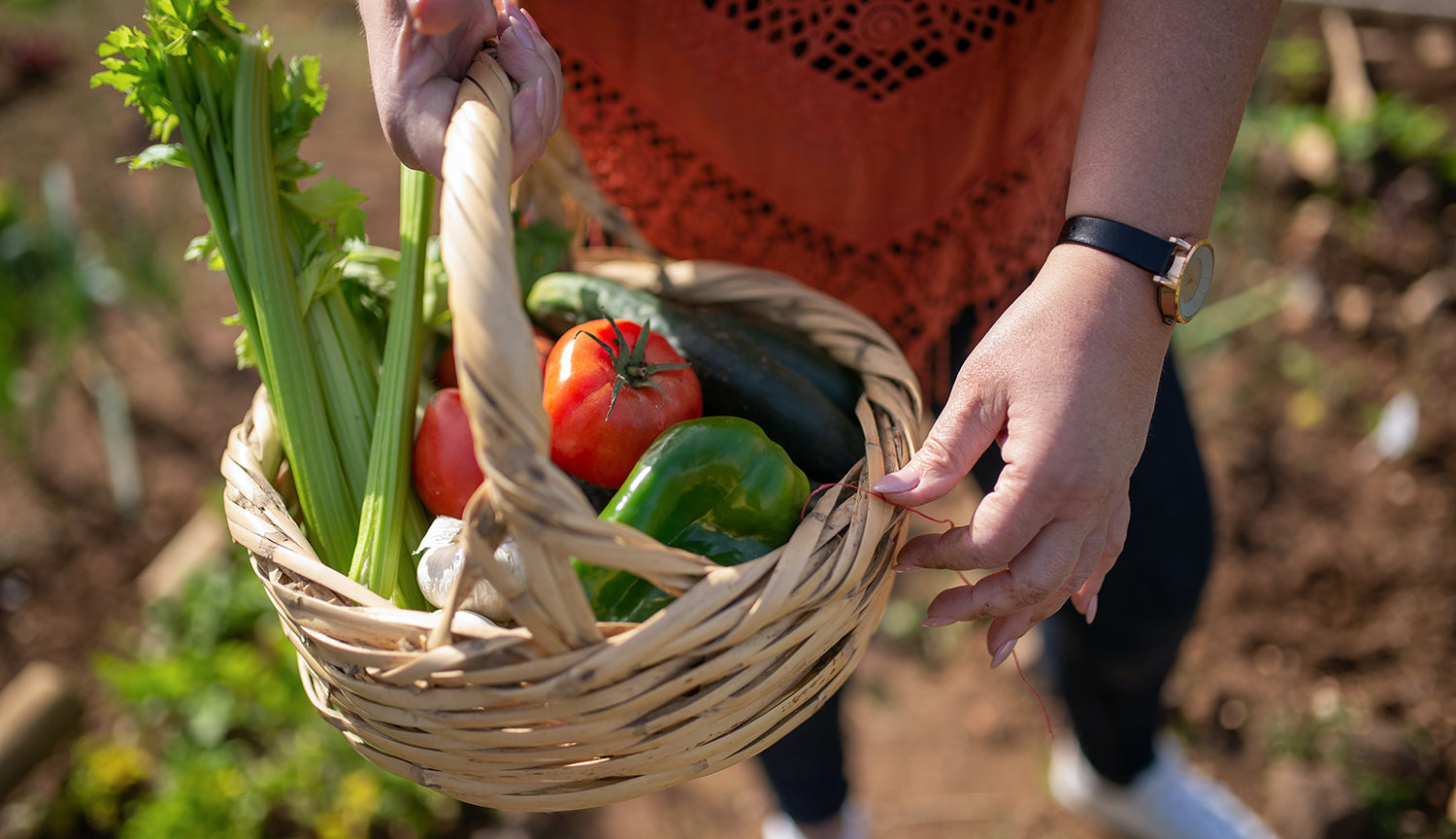
Reduce food waste
It’s thought that food accounts for around 50% of all household waste. That’s a lot of resources e.g. water and energy, used to produce the food that’s wasted, and then it takes more resources to deal with it thereafter.
Reducing food waste takes a bit of management. Not overbuying food to begin with, and then storing properly in proper airtight containers, will help a lot. And for an extra boost in reducing food waste, check out some handy apps. These apps make it easier to cut down on food waste and make your sustainable kitchen journey even simpler and more efficient!
Top tip: wait for food to cool properly before putting it in the fridge to save energy.
Transforming kitchen scraps into delicious meals
Then, happily, cooking more and trying new dishes with those ‘mushrooms that are on edge’ (risotto for the win). For seemingly disparate veg you’re not sure what to do with, we suggest vegetable polpette. Scraps can also be used to make a variety of stocks, or maybe turn them into compost for your plants. For more on this, check out our guide to composting with the Eden Project’s Catherine Cutler.
Fun fact: we use the leftovers from food production to make our compostable mobile cases!
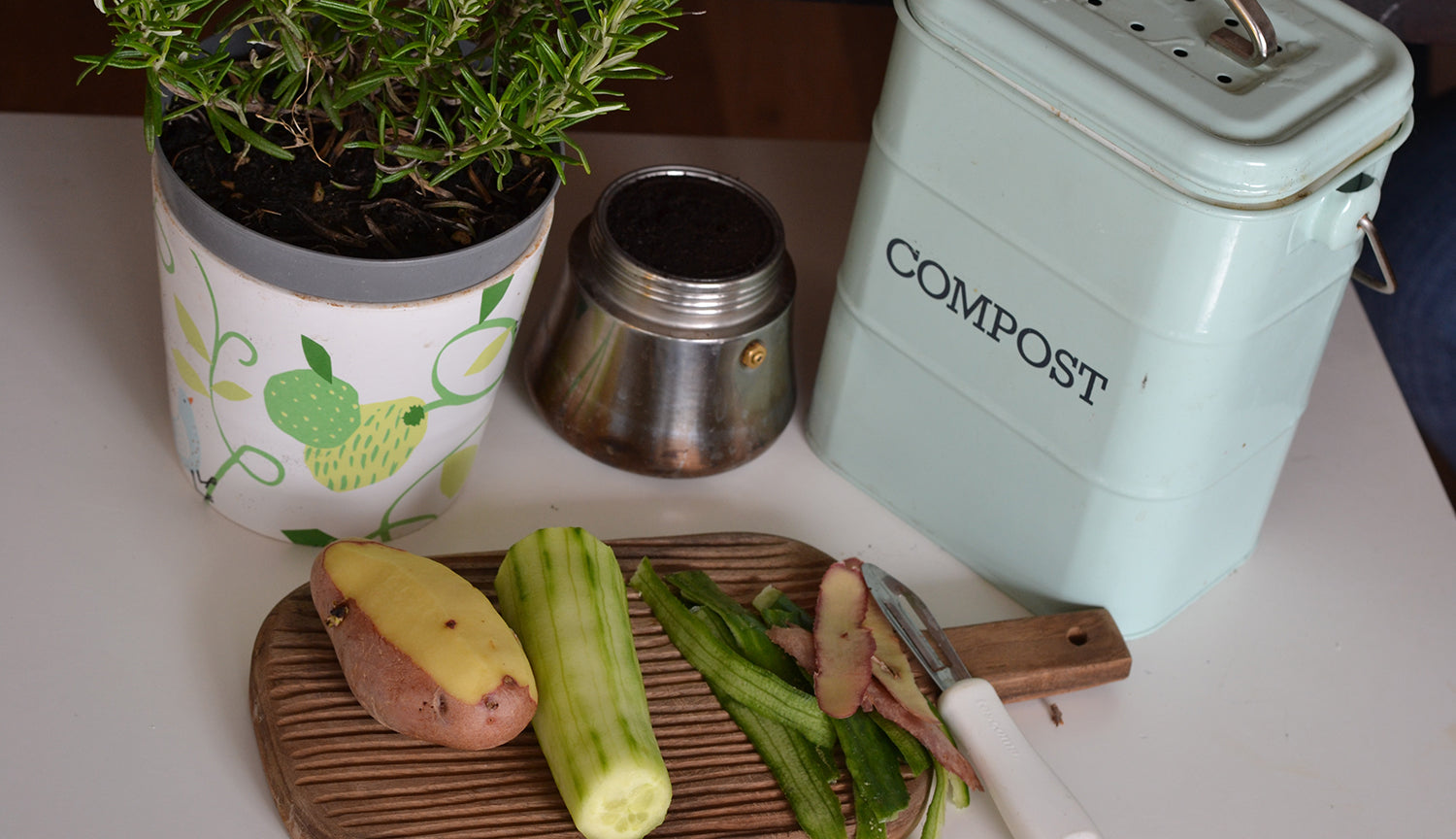
Go organic, buy weird
Organic food is grown naturally without harmful chemicals that upset vital ecosystems, so it’s definitely better to buy organic when possible. Also, we’re conditioned to select produce that’s photogenic, but an oddly shaped carrot tastes just as good as one that’s the vegetable equivalent of Naomi Campbell. Some retailers now even specialise in selling ‘wonky’ veg for a discount price.
Cook in bulk
Cooking in big batches isn't just about tasty leftovers and saving money. It's a smart way to make meals that are delicious, cost-effective, and save you time and effort in the kitchen. There are a few very good reasons to cook in bulk:
- One, some food tastes better the next day or the day after (hello curries and lasagne)
- Buying ingredients in bulk saves money
- The process of making a lot of one dish, rather than lots of small dishes, saves energy, money, time, and, probably, washing up.
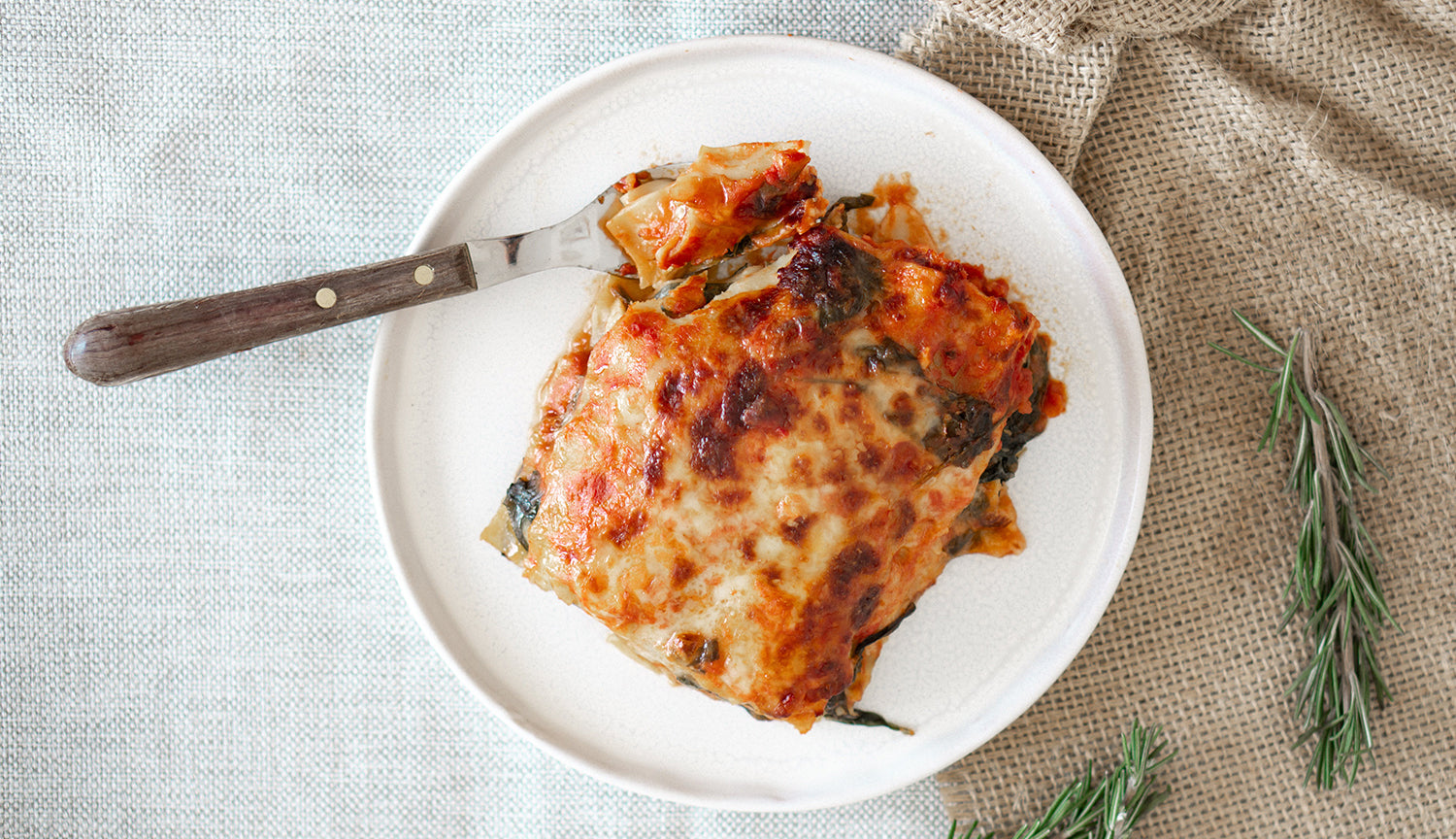
Ponder packaging
Often the food we buy in supermarkets is wrapped in excessive amounts of packaging. It’s normally pretty easy to see what’s excessive and what isn’t. However, fortunately, most of it can be reused or recycled and it's relatively straightforward to check which ones can or can't be. Of course, plastic carrier bags are obvious candidates for reuse, as well as glass jars and bottles.
Top tip: A lot of supermarkets (in the UK at least) will recycle LDPE plastic—the stuff that plastic carrier bags are made from. LDPE is ALSO used to make vegetable wraps and salad bags, so these can be recycled here too!
Use natural cleaning products
The cleaning product industry is actually surprisingly dirty. Long story short, many everyday cleaning products use chemicals that are toxic to people and the environment. We know this anyway just by looking at warnings plastered all over some of them. There are now brands on the market that choose not to use certain chemicals in their products, and you can even make your own.
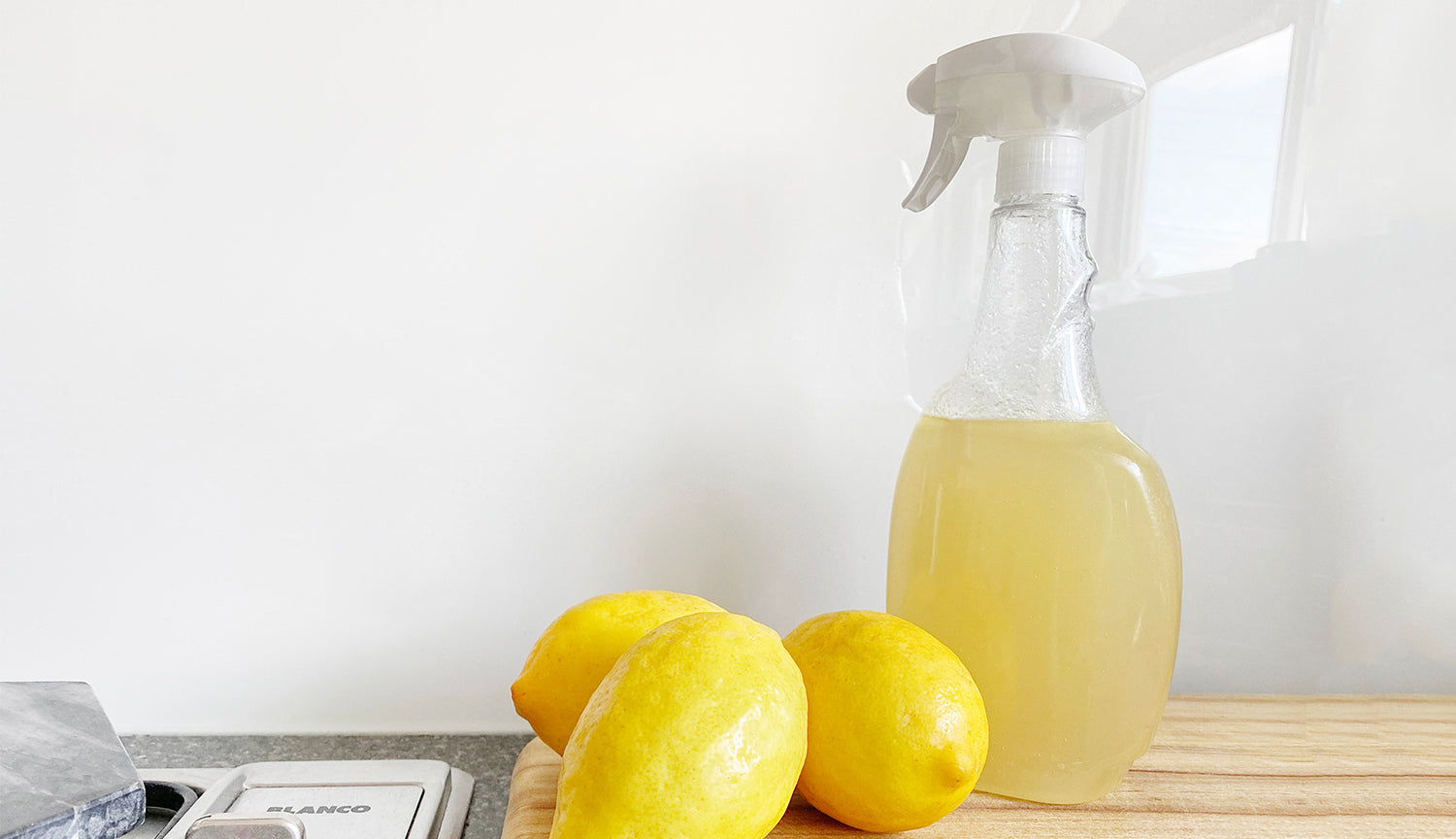
Some DIY options are:
- 4 tablespoons of baking soda to 1300ml water - good for kitchen counters, appliances
- 1/2 cup of lemon juice and 2 cups of white vinegar - great for de-greasing stove tops
- 1 part white vinegar, 1 part water, lemon rind and rosemary - good all-purpose cleaner.
Energy-efficient cooking methods
Appliances are a lot more efficient than they used to be. For example, ovens now heat up pretty fast so, unless you’re cooking a soufflé or baked alaska, there’s no real need to pre-heat anymore.
As mentioned, bulk cooking (so cooking multiple things in the oven at once) is more efficient, and for small things try a toaster oven or microwave. Re-heating in the microwave is a lot more efficient than in the oven.
Top tip for stove cooking: make sure the size of the hob matches up with the size of the pan or saucepan, otherwise most of the energy goes to waste.
Lastly, cold dishes such as salads and chilled soups means the only energy you need to use is your own + a bit of water. Our Spanish readers will already know the delights of gazpacho!
Energy-efficient kitchen appliances
Manufacturers make it easy to determine whether their appliances are energy efficient or not, usually by a rating system. When restocking your kitchen for appliances or utensils, it’s always better to buy secondhand if possible. Sites like Craigslist, Gumtree, or Freecycle are good for this. You can even pick up a whole new kitchen if you want!
Some appliances that will make your kitchen more efficient are:
- Dishwashers - contrary to what you might think, dishwashers save energy and water compared to hand-washing. Just make sure they’re full up before using.
- Induction cooktops - the most efficient stoves to cook on compared to gas and electric coils.
- Pressure cookers - significantly reduce cooking time and save money and energy.
- Slow cookers/crock-pots - extremely energy efficient by nature. Also, slow-cooked dishes taste yum!
- Chest freezers - are more efficient than regular freezers because the cold air stays trapped inside when you open them.
- Solar ovens - popular in developing countries. No energy is needed as food is cooked by sunlight!
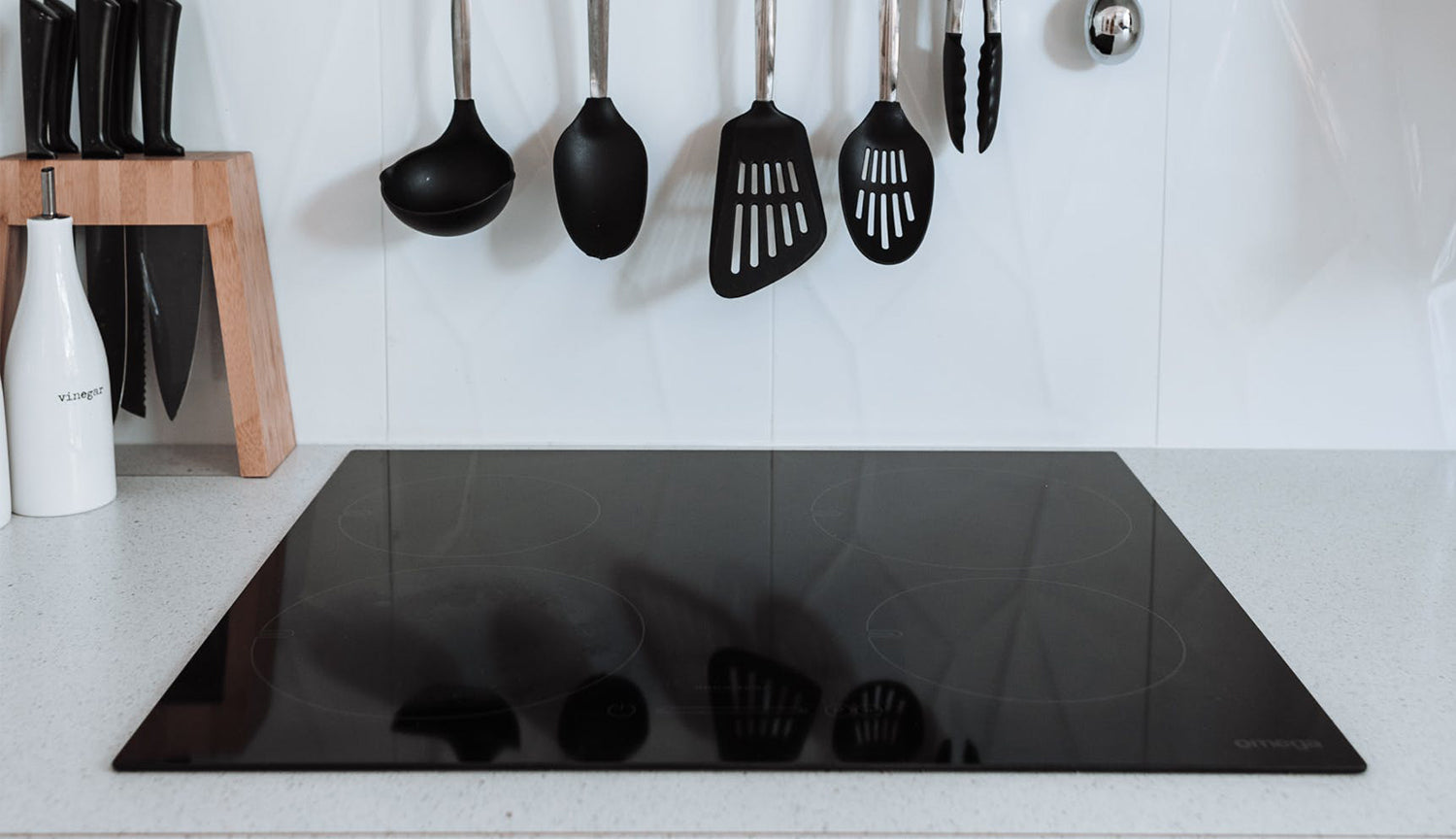
Conclusion
So, if you're spending more time in the kitchen (like most of us), here's the scoop on making it eco-friendly. Eat more veggies and less meat — it's good for you and the planet. Don't shy away from weirdly shaped carrots; they taste just as awesome! Reuse what you can and recycle the rest. And when it comes to cleaning, forget the chemical-loaded stuff. Mix some baking soda and water, or use lemon juice and vinegar — easy peasy! In the end, it's not just about what we eat but also how we care for our little corner of the world. Cheers to a future where every meal is a celebration of mindful living!





























